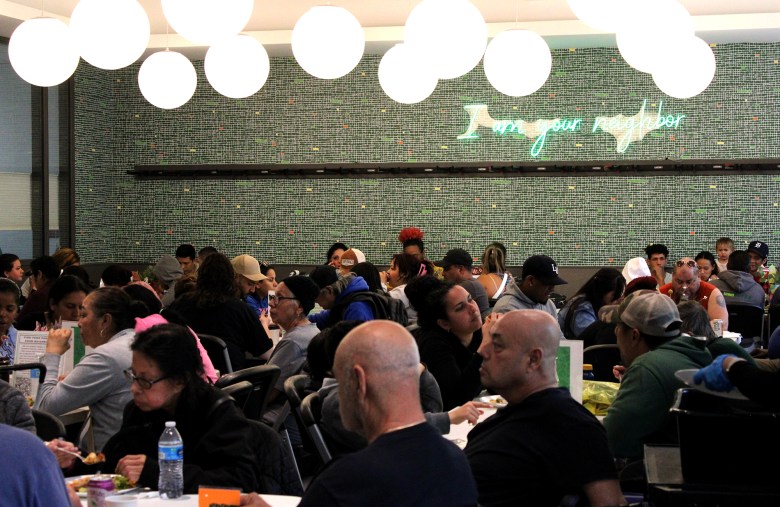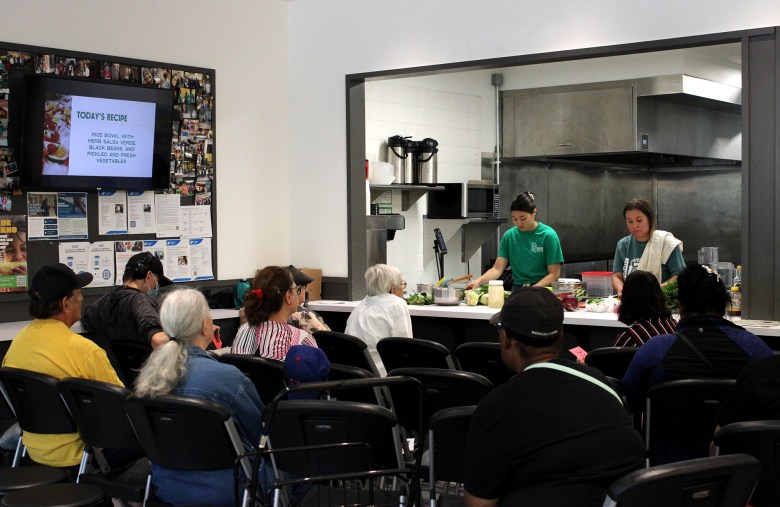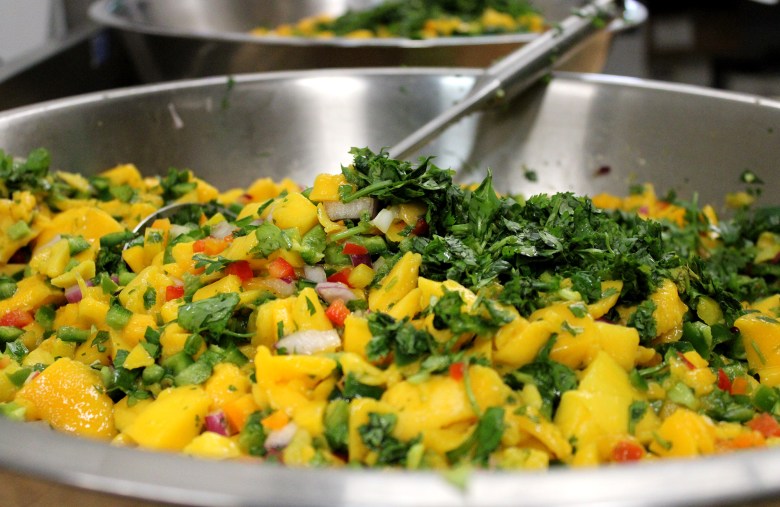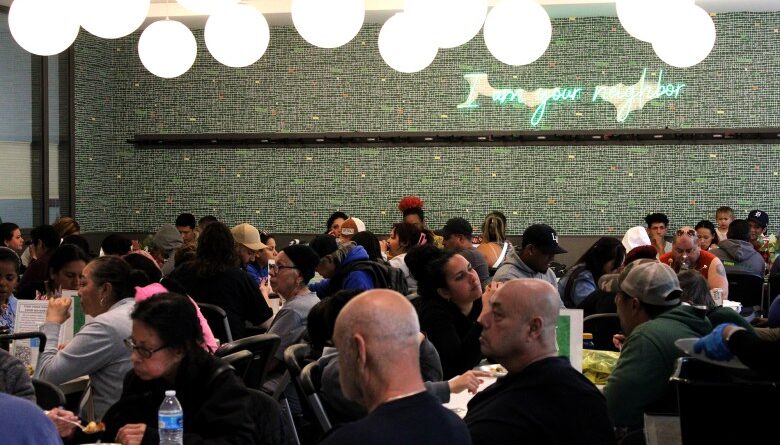North Center Common Pantry Offers Free Nutrition Education Amid Growing Need
NORTH CENTER – The Common Pantry’s recently expanded nutrition program is helping people learn more about healthy eating while serving hot meals ready to go.
The nonprofit food pantry has served hungry and malnourished North Siders since 1967. In 2021, it purchased a commercial building at 3900-10 N. Lincoln Ave for $1.5 million with a grant from government grants to expand its work.
The center opened last year, allowing the Common Pantry to help people with housing information, job searches, government benefits, health care and legal referrals, homeless services and documentation. the government without giving food to the people.
The nonprofit also offers nutrition education, a program the staff created after evaluating its clients, said Executive Director Margaret O’Conor.
“We’ve been involved in this before and we’ve had trials and pilots for it. But we’re moving forward with this new nutrition and cooking class for adults, our whole new program, three months ago,” O’Conor said.

Thanks to a commercial kitchen and community dining room, the Common Pantry can provide hot meals to its customers every Wednesday as well as a lesson on how to cook healthy meals at home, said Isabel Markowski, director of food programs for the Common Pantry.
“It’s very collaborative. It’s a big, open dining room, and we serve from the kitchen counter. Our volunteers serve the food directly to the guests,” said Markowski.
Between 80 and 100 people descend on Wednesdays for the pantry’s hot meals, which include dishes like shrimp diavolo, pollo guisado, gumbo and Thai fried rice.
We always have bread or cakes and soft drinks. We’ll have coffee, things like that. I put on some music, and it’s really good food. And that program has really grown based on demand,” Markowski said.
Markowski, a nutritionist with a background in environmental studies and working on farms, says she’s focused on helping people become “nutritionally secure” while addressing their deficiencies. of food with a hot meal program.
To that end, earlier this year, Common Pantry surveyed 200 of its customers to better understand the public’s interest in learning about nutrition, Markowski said.
“With this data, we found that many of our visitors already know how to cook. But they wanted to learn more about the science between food and health. They know that vegetables and fruits are good for us, but why?” Markowski said.

During one cooking class, the pantry partnered with Green City Market to prepare a veggie rice bowl with a green soup made with cilantro and other fresh herbs, Markowski said.
“People know what cilantro is, people know what these herbs are. But we were able to talk about how vegetables also have antioxidants,” he said.
Consumers have heard about antioxidants but often don’t have time to sort through the misinformation about their nutritional value, which is why individualized education can be so important, Markowski said.
“We will focus on meeting you where you are, to make it fun. We are not here to be the food police,” he said.
Consumers also wanted to better analyze their own culture’s food through a nutritional lens as well as learn about healthy recipes from other cultures that they may not be familiar with, Markowski said.
“So if someone is from Venezuela and they have Mexican neighbors and they would like to share food with them, but they don’t know if it’s too spicy or not spicy enough,” he said. like that.
Another takeaway from this study is that prepared foods cater to consumers who know how to cook but have busy schedules, which has led to pantries offering freshly made meals, on Tuesday, Markowski said.
“If you don’t have time to cook, and cooking is going to stress you out, we want to adapt and meet people where they are,” Markowski said.

The typical pantry served about 600 families a month by 2023. This year, that number has increased to more than 1,000 families a month, and demand for the nonprofit’s services continues to grow, O’Conor said earlier. .
“And there’s always a waiting list for home births,” O’Conor said.
Factors contributing to high demand include the continued arrival of immigrants to Chicago starting in August 2022, rising prices of groceries and other bills due to inflation and other disruptions throughout the food supply, Expiration of COVID-19 support programs with older adults in the region. residents, most of whom earn some money.
Among families receiving food assistance in Chicago, a third have a family member with diabetes and more than half have a family member with high blood pressure, according to the Common Pantry .
That’s why the food package is committed to nutrition-focused policies and services aimed at addressing the cycle of chronic disease and malnutrition, Markowski said.
“It’s not just access to food, but access to nutrient-dense foods that are culturally appropriate and build a foundation for good health,” Markowski said.
For more information about the nutrition program and how to volunteer, visit the Common Pantry website.
Listen to the Block Club Chicago podcast:
#North #Center #Common #Pantry #Offers #Free #Nutrition #Education #Growing
